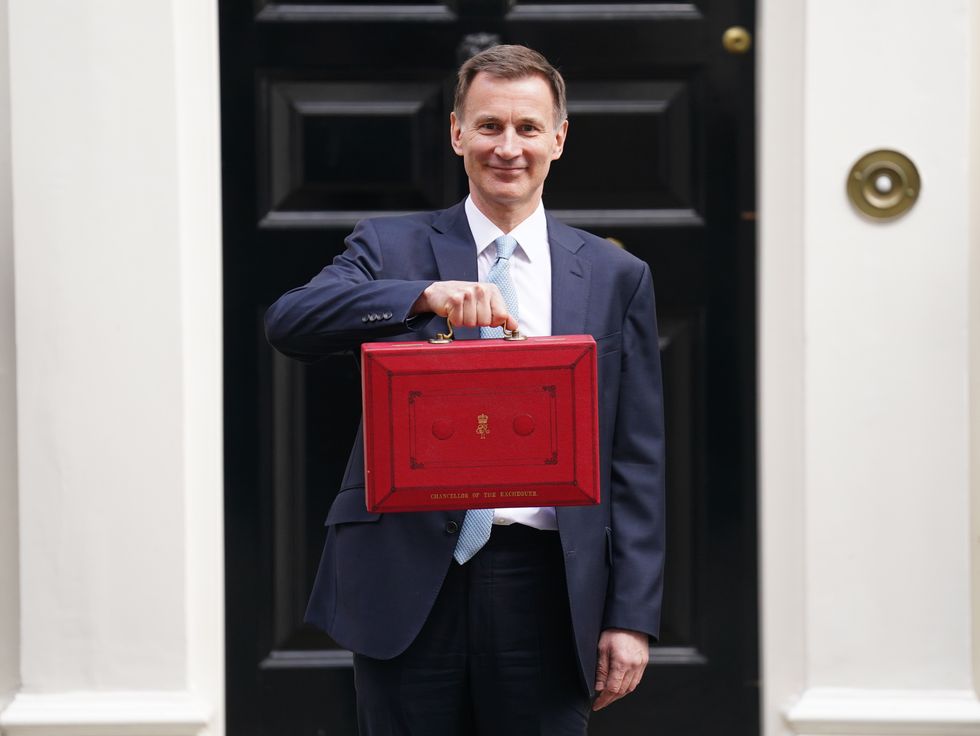Jeremy Hunt announced changes to Child Benefit rules which have a knock-on effect on peoples’ state pension entitlement
Don't Miss
Most Read
Trending on GB News
Thousands of families could miss out on up to £3,094 and their full state pension entitlement, experts are warning.
Analysis from interactive investor is highlighting how 180,000 parents risk jeopardising their retirement following changes to Child Benefit.
Some 485,000 higher earners will benefit after Chancellor Jeremy Hunt raised the income tax threshold for the benefit’s “high income” tax charge during this year’s Spring Budget.
Under existing rules, thousands avoid claiming Child Benefit as they know they will have to repay it through the tax charge.
Furthermore, higher income households who claim the benefit have opted out of receiving payments by ticking a box online.
Last week, Hunt confirmed that threshold will be raised from £50,000 to £60,000 which is the first increase since it was introduced by George Osborne in 2013.
Do you have a money story you’d like to share? Get in touch by emailing money@gbnews.uk.

Parents could miss out on their full state pension and a sizable cash boost following changes to Child Benefit rules
GETTY
As well as this, the Chancellor announced the taper for the charge will be extended from £60,000 to £80,000.
Based on figures from HM Revenue and Customers (HMRC), 180,000 families who are not claiming the support or have opted out will be eligible for Child Benefits.
These are households where the higher earner makes up to £80,000, however interactive investor is remaining those affected they will need to take action as soon as possible.
Specifically, experts are highlighting that they will need to apply for Child Benefit from scratch or untick the box online if they want to start receiving payments.
Alice Guy, the head of Pensions and Savings at interactive investor, outlined what is at stake for parents across the UK.
She explained: “Thousands of families have opted out of the Child Benefit system and will now have to scramble to opt in again.
“They will need to reapply from scratch or log in online to select that they want to receive Child Benefit.
"Child Benefit is automatically backdated by three months, or to the child's date of birth (whichever is later).
“Even if you earn over £80,000, it’s important to check if you’re eligible for Child Benefit as your income is calculated after deducting pension payments and gifts to charity under a gift aid scheme.”
According to the savings expert, parents could receive up to £3,094 under Child Benefit if they have three children from April 2024.
If a family has two children, parents could get up to £2,212 which could help households dealing with the cost of living crisis.
“While reasons for opting out aren’t explored in the Government’s data, some families may have elected to not receive Child Benefit rather than going through the hassle of paying back the Child Benefit via self-assessment,” Guy added.
LATEST DEVELOPMENTS:

Chancellor Jeremy Hunt outlined changes to Child Benefit in Spring Budget last week
PAThe pensions expert reminded parents that claiming Child Benefit could boost their retirement savings.
Guy said: “The high level of those not claiming Child Benefit raises concerns that parents are unwittingly missing out on valuable National Insurance credits, which could potentially boost their state pension in future.
“To receive a full state pension you need 35 years of either National Insurance payments or National Insurance credits.
“Claiming Child Benefit gives you a National Insurance credit if your child is under 12 and therefore could increase your State Pension when you retire.”









